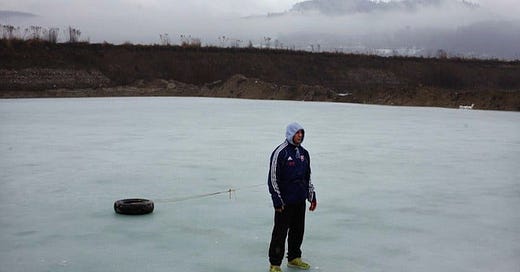Crossing Borders at the Jihlava International Documentary Film Festival

The Czech city of Jihlava, about an hour and a half outside of Prague, is not a very big place. In bad weather it can feel like the world’s most picturesque ghost town. Yet for a few days a year, it becomes the center of the Jihlava International Documentary Film Festival, a thoroughly cosmopolitan cinematic affair. This is, of course, true of many film…
Keep reading with a 7-day free trial
Subscribe to Nonfics to keep reading this post and get 7 days of free access to the full post archives.



